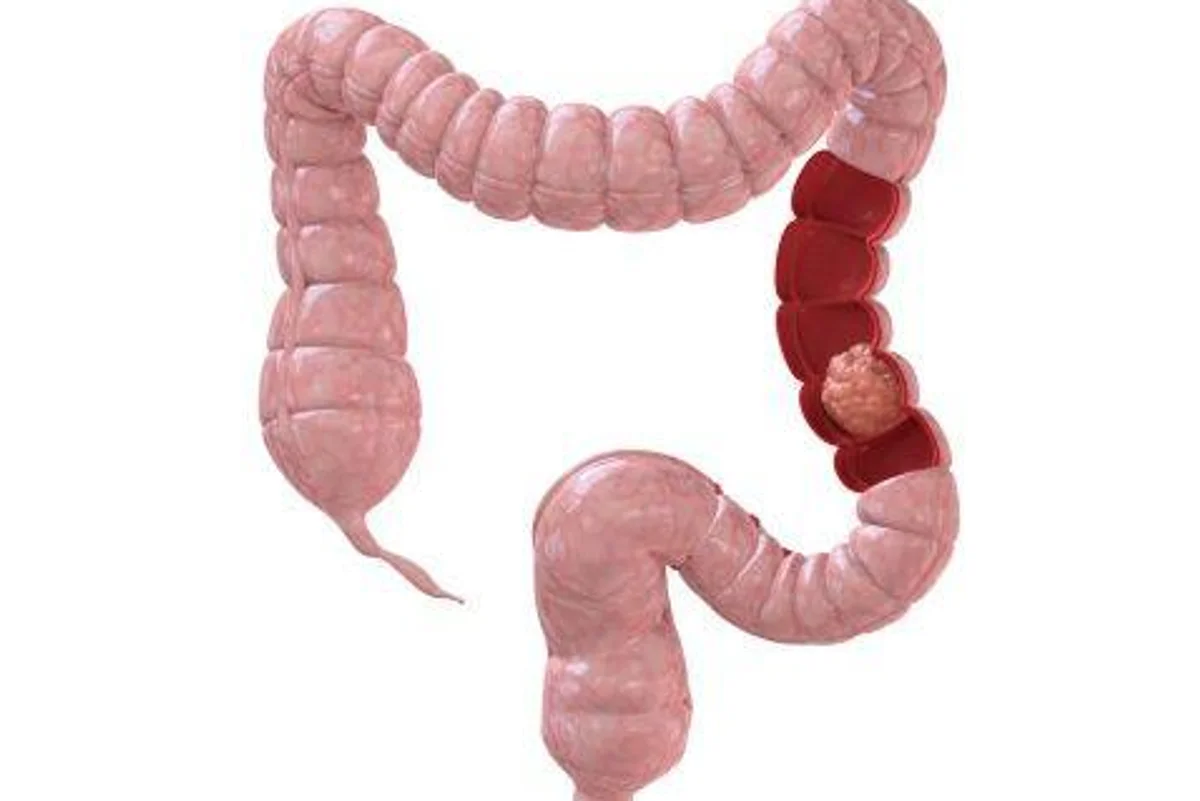I'm a little late to announce that March was colon cancer awareness month. I guess I'm guilty of what a lot of us do when it comes to colon cancer awareness: ignore it or procrastinate thinking about it.
But what's important to realize is that colorectal cancer is an "equal opportunity employer," striking both men and women. It is responsible for 150,000 diagnoses (that's about 16 people every hour!) and 50,000 deaths annually in the United States.
But the good news is this: it is preventable. Don't wait until you have symptoms. Get checked while you're still healthy.
First, a quick background: Most colorectal cancers begin as a noncancerous growth (called a polyp) that forms on the innermost layer of your colon or rectum. Some polyps can become cancerous. That's why colonoscopies are so important, because the physician can remove the polyps during the exam.
But if the growth is not spotted, or removed, what happens next is serious: as the tumor develops, it grows through several layers of tissue and may eventually reach nearby lymph and blood vessels. It may even spread to lymph nodes and distant sites in your body.
It's time to stop fearing colonoscopies and colorectal cancer and get knowledgeable about the signs and symptoms of this cancer. Here's what to look for:
- A change in bowel habits
- Blood (either bright red or very dark) in the stool
- Diarrhea, constipation or feeling that the bowel does not empty completely
- Stools that are narrower than usual
- Frequent gas pains, bloating, fullness or cramps
- Weight loss for no known reason
- Extreme fatigue
Risk factors for colorectal cancer include:
- Age: More than 90 percent of people diagnosed are over age 50
- Medical history: You may be at increased risk if you or a family member has a history of polyps or colorectal cancer, inflammatory intestinal conditions (like ulcerative colitis, Crohn's disease, etc.) or inherited syndromes (like Lynch syndrome, Familial Adenomatous Polyposis).
- Diet: A diet high in red meats (beef, pork, lamb), processed meats and saturated fat
- Lifestyle: Low physical activity, obesity, smoking and heavy alcohol use
Recently I attended a wonderfully informative luncheon on colon cancer where I had the pleasure of hearing some truly inspirational and knowledgeable speakers. Among them was Deepak Chopra, who spoke about stress and its relationship to disease. He said that cortisol and adrenalin were produced during times of stress, and it is these hormones that can destroy cell-repair mechanisms in our bodies. “The science of self-repair has been underestimated,” he said. Some ways to get our bodies to self-repair?
Here are his top six tips for maintaining harmony during cancer (although I think these are also top tips for everyday life):
- Set goals and priorities. Create a strong baseline for your goals; be aware of your biggest challenges, but also focus on the sweet spots in life that give you strength and joy.
- Maintain a healthy diet, including fresh foods and wholesome liquids. Abstain from stimulants and sedatives. Have a bowel movement once a day. Discuss recommendations with your health care professional.
- Practice meditation and visualization. Both practices help bring the body-mind into a deep state of relaxation, restore balance and allow healing to unfold.
- Express your emotions. Suppressing legitimate feelings is toxic for the immune system.
- Resist alienating yourself. Surround yourself with positive, supportive relationships.
- Learn the science of self-repair. Understand how your cancer treatments work, but also know that the inner self you cultivate (mind and body) is a powerful medicine.
But what was perhaps the most eye-opening part of the day was meeting young women who had been diagnosed with colon cancer. Among them was one of the most upbeat, enthusiastic women I've ever met: Gloria Borges, a corporate attorney who was diagnosed with stage IV cancer at age 28. Because of her young age, her symptoms were easily dismissed, until they got so severe she landed in the hospital. Gloria, whose energy and bright smile filled the room, launched The Wunderglo Foundation in September 2011, just one year after her diagnosis of stage IV colon cancer. She is focused on raising the money it takes for research to cure the disease, estimated to be $250 million dollars. Take a moment to look at her website. It's inspirational, informative and could help save a life.
You might also want to read:
Easy Ways to Eat More Fiber
Colon Cancer Guide






